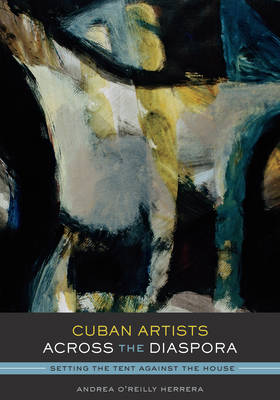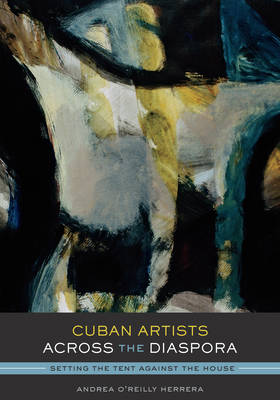
- Afhalen na 1 uur in een winkel met voorraad
- Gratis thuislevering in België vanaf € 30
- Ruim aanbod met 7 miljoen producten
- Afhalen na 1 uur in een winkel met voorraad
- Gratis thuislevering in België vanaf € 30
- Ruim aanbod met 7 miljoen producten
Omschrijving
As an island--a geographical space with mutable and porous borders--Cuba has never been a fixed cultural, political, or geographical entity. Migration and exile have always informed the Cuban experience, and loss and displacement have figured as central preoccupations among Cuban artists and intellectuals. A major expression of this experience is the unconventional, multi-generational, itinerant, and ongoing art exhibit CAFÉ The Journeys of Cuban Artists. In Cuban Artists Across the Diaspora, Andrea O'Reilly Herrera focuses on the CAFÉ project to explore Cuba's long and turbulent history of movement and rupture from the perspective of its visual arts and to meditate upon the manner in which one reconstitutes and reinvents the self in the context of diaspora.
Approaching the Cafeteros' art from a cultural studies perspective, O'Reilly Herrera examines how the history of Cuba informs their work and establishes their connections to past generations of Cuban artists. In interviews with more than thirty artists, including José Bedia, María Brito, Leandro Soto, Glexis Novoa, Baruj Salinas, and Ana Albertina Delgado, O'Reilly Herrera also raises critical questions regarding the many and sometimes paradoxical ways diasporic subjects self-affiliate or situate themselves in the narratives of scattering and displacement. She demonstrates how the Cafeteros' artmaking involves a process of re-rooting, absorption, translation, and synthesis that simultaneously conserves a series of identifiable Cuban cultural elements while re-inscribing and transforming them in new contexts.
An important contribution to both diasporic and transnational studies and discussions of contemporary Cuban art, Cuban Artists Across the Diaspora ultimately testifies to the fact that a long tradition of Cuban art is indeed flourishing outside the island.
Specificaties
Betrokkenen
- Auteur(s):
- Uitgeverij:
Inhoud
- Aantal bladzijden:
- 272
- Taal:
- Engels
- Reeks:
Eigenschappen
- Productcode (EAN):
- 9780292726956
- Verschijningsdatum:
- 1/06/2011
- Uitvoering:
- Paperback
- Formaat:
- Trade paperback (VS)
- Afmetingen:
- 180 mm x 251 mm
- Gewicht:
- 907 g

Alleen bij Standaard Boekhandel
Beoordelingen
We publiceren alleen reviews die voldoen aan de voorwaarden voor reviews. Bekijk onze voorwaarden voor reviews.











